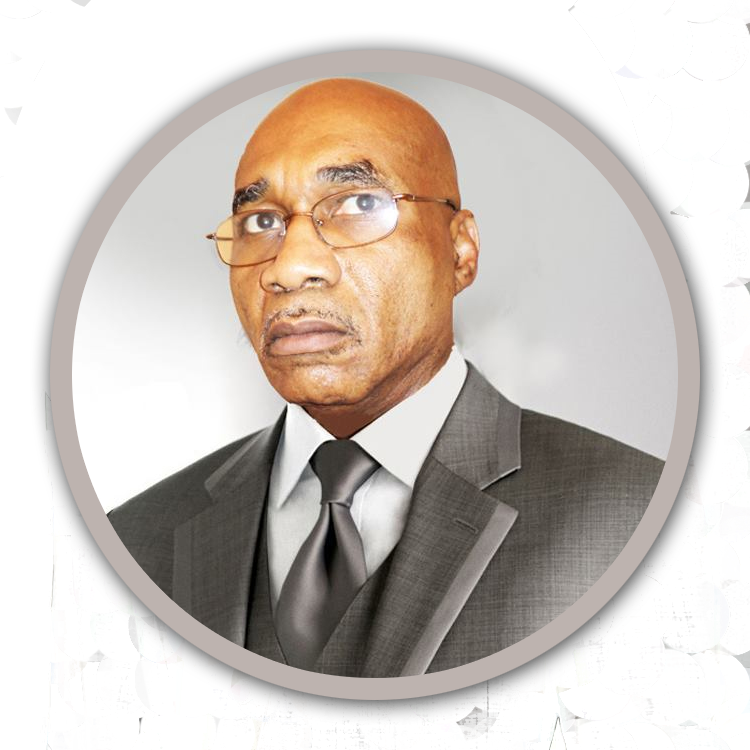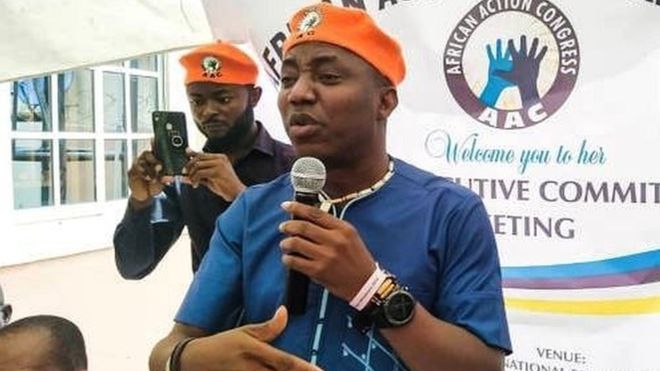Revolution breeds anarchy. Political activism becomes hooliganism when they are engineered by unscrupulous political vandals with ulterior motives.
So when the owner of the Sahara Reporters Mr. Omowole Sowore was arrested by security agents for his planned violent protests against the Nigerian government, some activists went on the air to preach the civil liberty gospel. The major argument was that arresting this activist in a protest that has not occurred is undemocratic because no laws have been broken. That makes sense, but utterly nonsensical in practical terms.

By Anthony Obi Ogbo
The basic way to manage domestic terrorism is to wrestle the symptoms and mitigate them. Leaders who fail to follow this rule are often caught up with horrendous incidents where they would end up counting dead bodies. As I write, the United States of America are reeling from yet more gruesome sights of violence and death when in less than 13 hours and nearly 1,600 miles apart, two mass shootings left at least 29 dead and 53 injured.
Sowore’s arrest triggered a long thread of disagreement in the social media about the empirical meaning of the term “revolution.” Some defended Sowore’s proposed revolution as a mere protest because there were no violent undertones, whereas others suggested that his call might bring violence and anarchy. In fact, some compared the current administration with the previous regime of Dr. Goodluck Jonathan – arguing that the latter offered unprecedented freedom to his opposition. But democracy does not work like that. If indeed the former President Jonathan failed to prosecute vandals who threatened his regime with violent revolution that might not be democratic but a clueless display of idiocy.
In political governance, the severity of a call for a revolution would depend on the actors, their conduct, and political environment. But for Nigeria, a nation which has endured a horrific civil war, multiple coups, and several destructive and violent protests, a call for a revolution by a controversial group or individual might not just be overlooked by any meaningful law enforcement.
There is no doubt that the word “Revolution” is broad and lacks unambiguous meaning in basic definition. Also, most scholars would agree that the universal objective of any revolution would be to facilitate a transformation from an existing state to a higher level of system success – which may or may not be violent. However, in political governance, the severity of a call for a revolution would depend on the actors, their conduct, and political environment. But for Nigeria, a nation which has endured a horrific civil war, multiple coups, and several destructive and violent protests, a call for a revolution by a controversial group or individual might not just be overlooked by any meaningful law enforcement.
Sowore’s latest case is basically a misleading political venture. From all indications, he wanted to be arrested so as to build a political base from a socially vulnerable populace who would see him as a hero. He was the Presidential Candidate for the African Action Congress (AAC), a party he founded. However, he failed terribly in the election.
His political career crumbled soon after the election, when in July, a Federal High Court in Abuja validated his suspension in his own party. He was suspended February 23, for allegedly engaging in anti-party activities. This was when Sowore switched his title to “comrade.”
His political career crumbled soon after the election, when in July, a Federal High Court in Abuja validated his suspension in his own party. He was suspended February 23, for allegedly engaging in anti-party activities. This was when Sowore switched his title to “comrade.” He quickly consulted prominent activists opposed to the regime to market his project. He used his social media platform to share videos advocating a violent revolution in a proposed nationwide protest scheduled for August 5, 2019.” In his own words, Sowore vowed, “This is just a rehearsal of what is going to be the biggest revolution in this country”, claiming that some “big wings” in the opposition parties especially the PDP had already accepted it as a new face in the country.

Based on Sowores proposals, we may not need to recite any laws to assess his objectives. He is a self-acclaimed revolutionist who wants to lead a violent rebellion against his government. In some of the videos he posted in the social media, he incited young folks to joining his cause – suggesting unrestricted resistance and possible showdown. Such proposals would definitely leave any law enforcement with several options to mitigate chaos as well as investigate possible violations.
Just a little background – Sowore is not a new name in current Nigeria’s leadership crisis. He is not a part of the current government, but the role he played during the electioneering season that elected the incumbent leaves him without further introduction in the Nigeria’s political history. He operated the Sahara Reporters, an internet controversial news blog which he started and operated at the time in his Manhattan’s studio apartment.
He untruthfully claimed that Sahara Reporters was set up to fight corruption and wrong government practices – thus received undisclosed grants from both the Ford Foundation and Omidyar Foundation. Contrary to these objectives, Sowore was accused of using this platform as a bargaining tool to court unscrupulous politicians whom he collaborated with to blackmail the previous regime headed by Dr. Jonathan.
He untruthfully claimed that Sahara Reporters was set up to fight corruption and wrong government practices – thus received undisclosed grants from both the Ford Foundation and Omidyar Foundation. Contrary to these objectives, Sowore was accused of using this platform as a bargaining tool to court unscrupulous politicians whom he collaborated with to blackmail the previous regime headed by Dr. Jonathan.
For instance, the regime accused Sowore of receiving a $5m mansion-gift from the major opposition party, the All Progressives Congress (APC). The regime claimed Sowore is being bribed to use his online news platform to “mislead and hoodwink gullible and highly brainwashed Nigerians through highly biased, junk, sensational and sectional journalism.” But Sowore denied the allegations, describing President Goodluck Jonathan as a “cheap blackmailer and liar’. In fact, Sahara Reporters at the time published an unsubstantiated poll which showed that Dr. Jonathan “would be defeated by 75% if pitched against Buhari” in the 2015 general election.
But besides the aforementioned trade of accusations and counter-accusations, Sowore’s collaboration with the APC in pulling down the incumbent at the time to elect this current regime remains as clear as spring water. He supported unequivocally, all fabricated campaign propaganda orchestrated by the opposition and promoted editorial columns and video blogs tailored to frantically destroy the structure of Nigeria’s politics in order to pave way for his opposition collaborators.
So the issue is how such a character could turn around and become a “Comrade” overnight in the same democratic structure he painstakingly destroyed. Do not get this wrong. Sowore has the right to agitate his grievances with the regime or their policies. In a democracy, the statutory functions of civil liberty is not negotiable. The regime cannot authoritatively interfere with the citizens’ rights to peacefully assembly, protest, speak out, or advocate a redress of policies. But it must also be noted that in constitutional democracy where written laws direct all functions of the government, a call for a revolution could be treasonable, especially where it is perceived to obstruct national security or public safety.
A protest or call for revolution loses the civil liberty protection where actors and actions or proposed engagements undermine the laws of the land. Furthermore, whereas freedom to protest is unequivocally legitimate, inflammatory communication systematized by actors loaded with ulterior motives to invoke ferocious actions might be subversive and felonious.
♦ Anthony Ogbo, PhD, Adjunct Professor at the Texas Southern University is the author of the Influence of Leadership (2015) and the Maxims of Political Leadership (2019). Contact: anthony@guardiannews.us

Leave a Reply